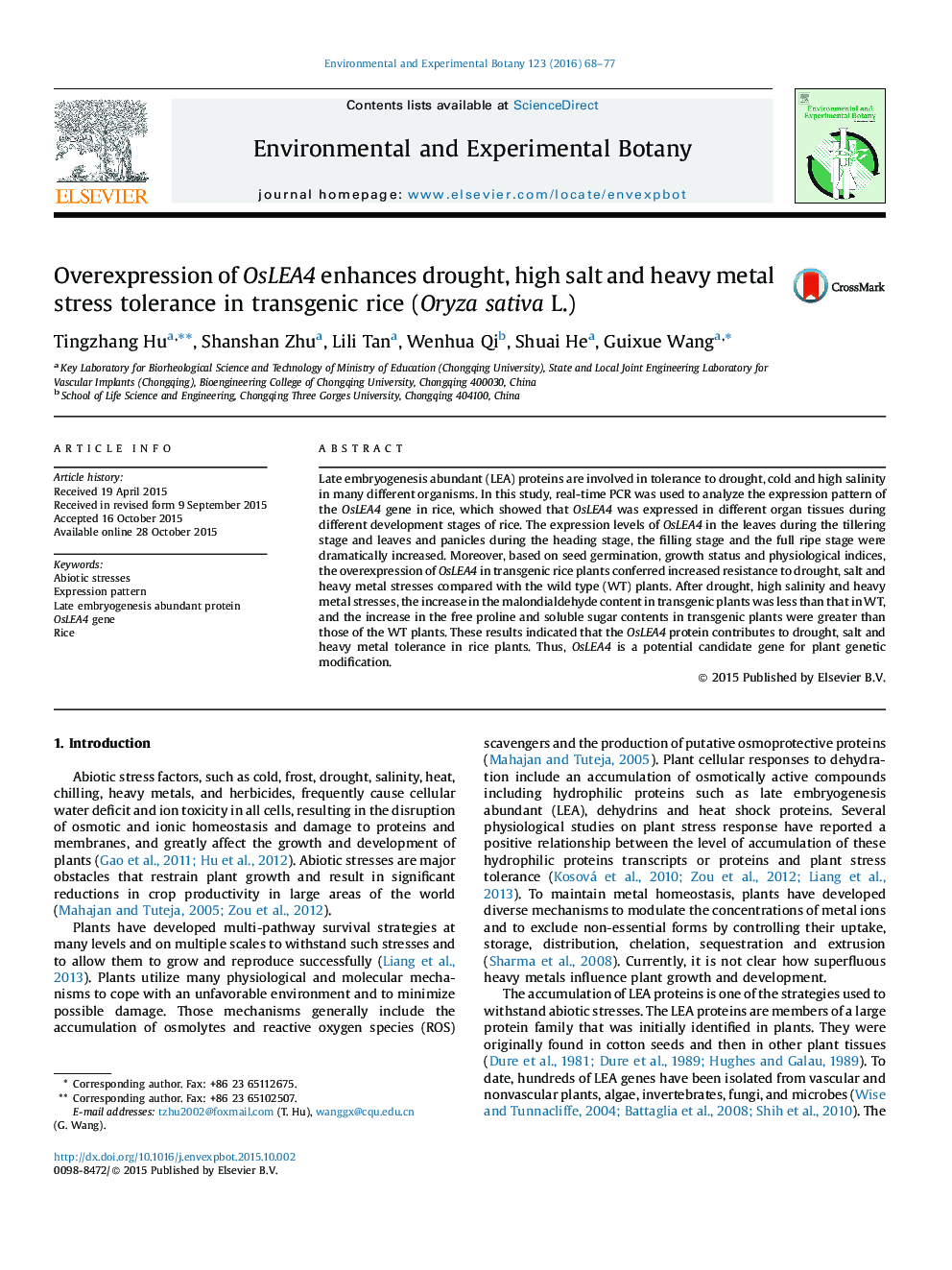| Article ID | Journal | Published Year | Pages | File Type |
|---|---|---|---|---|
| 4554136 | Environmental and Experimental Botany | 2016 | 10 Pages |
•LEA proteins are involved in tolerance to abiotic stresses.•We analysed the expression pattern of OsLEA4 in rice.•The rice overexpressing OsLEA4 is more tolerant of drought, salt and heavy metal stress.•The OsLEA4 protein contributes to drought, salt and heavy metal tolerance in rice.
Late embryogenesis abundant (LEA) proteins are involved in tolerance to drought, cold and high salinity in many different organisms. In this study, real-time PCR was used to analyze the expression pattern of the OsLEA4 gene in rice, which showed that OsLEA4 was expressed in different organ tissues during different development stages of rice. The expression levels of OsLEA4 in the leaves during the tillering stage and leaves and panicles during the heading stage, the filling stage and the full ripe stage were dramatically increased. Moreover, based on seed germination, growth status and physiological indices, the overexpression of OsLEA4 in transgenic rice plants conferred increased resistance to drought, salt and heavy metal stresses compared with the wild type (WT) plants. After drought, high salinity and heavy metal stresses, the increase in the malondialdehyde content in transgenic plants was less than that in WT, and the increase in the free proline and soluble sugar contents in transgenic plants were greater than those of the WT plants. These results indicated that the OsLEA4 protein contributes to drought, salt and heavy metal tolerance in rice plants. Thus, OsLEA4 is a potential candidate gene for plant genetic modification.
Graphical abstractFigure optionsDownload full-size imageDownload as PowerPoint slide
